Many people say ~ Dogs love us unconditionally.
However, others argue that dogs are not capable of love, much less unconditional love. What seems like love to us is only behavioral conditioning. Is this true? What does unconditional dog love mean?
When people say that dogs love us unconditionally, they are referring to how some dogs continue to seek human company, attention, and affection, even after being hit, beaten, neglected, and abused by us.
This does not mean that dogs love all people unconditionally, but that they have the capacity to forgive, forget, and love us again even after going through some tough times.
This does not mean that dogs do not feel pain or do not suffer from pain, nor does it mean that they are unaffected by abuse. It only means that they have the ability to bounce back if we give them the chance and help them to do so.
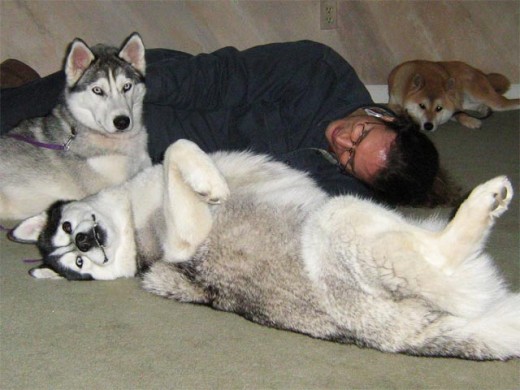
Do Our Dogs Truly Love Us?
However, is this an indication of real love or is this merely conditioning? Do our dogs lie next to us, lick us, and show us doggy affection because they have learned that it will get them food and other resources? Or do they truly love and enjoy our company?
Some researchers argue that it is all conditioning, and that …
“If we moved our dogs to our neighbor’s house and that neighbor gave the dogs as much as we gave them and in the same motivational forms, I believe our dogs would adapt to the new life and would become as loyal to the neighbor as they were to us.”
~~[Fred Metzger, State College veterinarian]
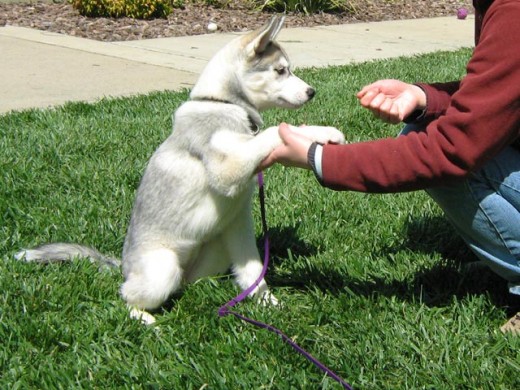
However, other scientists disagree. In fact, recent MRI data (dog brain scans) from scientists at Emory University in Atlanta, Georgia show that dogs do experience feelings of love and affection. In particular, the MRI data is different when a dog is given treats by a stranger and by someone that they have a strong bond with.
What do you think? Do our dogs truly love us or is it just conditioning?
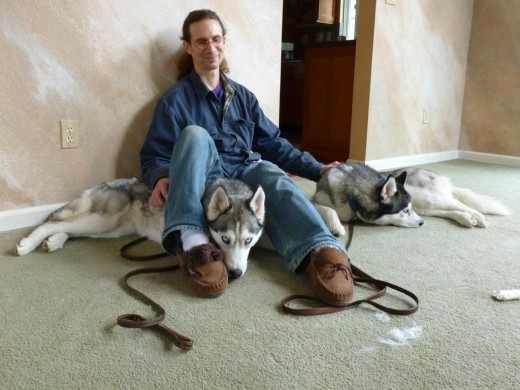
What Is Love?
There are as many forms of love as there are moments in time.
~~[Jane Austen]
Whether our dog loves us, will greatly depend on what love means to us.
I have a close relative, whom I will call Aunt Marie.
Aunt Marie is someone who is very interested in measuring love. She keeps track of whether her children, as well as nephews and nieces call her on her Birthdays and other special occasions. Do they send her cards? Do they call? Do they call on the day itself, or do they forget and call too early or too late? Do they call other aunts and uncles? What about gifts?
As far as I can tell, Aunt Marie uses these behaviors and others to calculate who loves her, whether they love her more than another aunt or uncle, and whether it is truly love for her or something else, e.g. love of her money.
Not surprisingly, Aunt Marie is not a very happy person.
Very frequently, she comes up with reasons as to why people do not love her. “They are only calling me or sending me cards and presents out of duty”, she declares. “They are only doing this to get my money.”
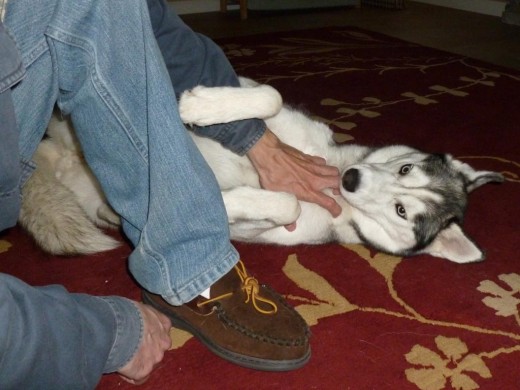
What is love to you? Is it blind loyalty? Does it have to be perfect and free from other motivations?
We can never truly know what another person or animal is thinking. Like Aunt Marie, we can decide to continually measure love and deny the love of others, or we can enjoy the moment and love others back.
Love is not something that is easily defined and therefore, it is not something that can be measured. However, it is there, and it is powerful, and it is something to be enjoyed. Like us, it may not be perfect, but perfection is not necessary.
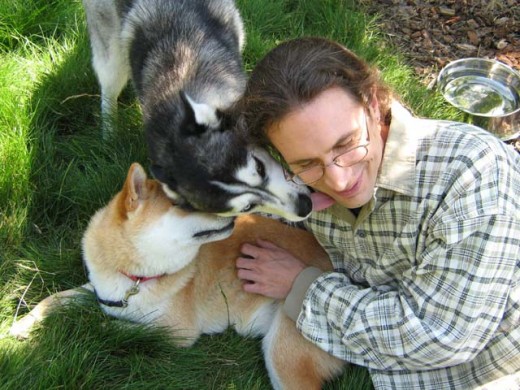
De-Humanizing Our Dogs
Some people insist that dogs are incapable of love, because they are animals. These statements always include some dire warning about how attributing these “human feelings” to our dogs is dangerous because it is humanizing our dogs, and this will lead to bad behavior and an out of control dog.
I fail to see how believing that our dogs are capable of love is detrimental to anyone. Does that mean that their love is exactly like ours, probably not. However, why should that matter? Why is dog love unworthy of the name?
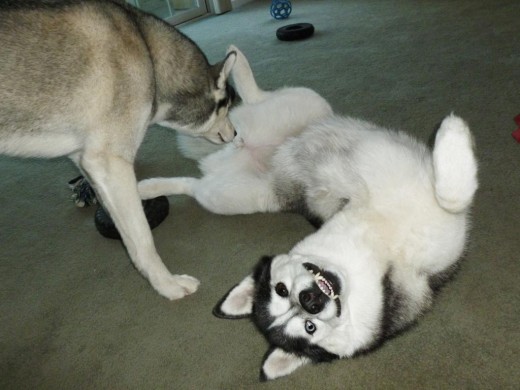
In the dog training world, there is a fair amount of discussion around humanizing dogs, but very little around de-humanizing dogs. I suppose because dogs are clearly not human, we assume that de-humanizing them is only right and natural.
However, dehumanization is much much more than just an attribution of species.
Dehumanization or dehumanisation describes the denial of “humanness” to others …
It is conceptually related to infrahumanization,[4] deligitimization,[5] moral exclusion[6] and objectification.[7] Dehumanization occurs across several domains, is facilitated by status, power, and social connection, and results in behaviors like exclusion, violence, and support for violence against others.
~~[Wikipedia]
dehumanization – the act of degrading people with respect to their best qualities;
dehumanisation, degradation, debasement – changing to a lower state (a less respected state)
~~[The Free Dictionary]
By dehumanizing our dogs, they automatically become second class citizens, therefore, it becomes more acceptable for us to hit them, shock them, or choke them into submission.
Indeed, we do not want to overly humanize our dogs, because that may lead to mis-communication and misinterpretation of their behaviors, which will hinder the creation of a positive and healthy dog-human bond.
Similarly, we do not want to overly dehumanize our dogs, because that may lead to the same detrimental results.
Training and bonding with our dog does not just involve our dog, it involves us as well, in very big part. Helping my dog improve his behavior, also helped me improve my own behavior. I learned to better control my temper, to show more empathy, to be more patient, to let things go, and to enjoy the moment.
De-humanizing our dogs demands everything from our dog, and nothing from us. It is the opposite of love.
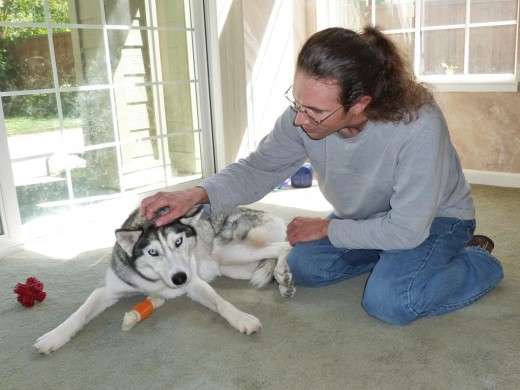
Do My Dogs Really Love Me Unconditionally?
I don’t know.
I think the more important question to ask myself is whether I love my dogs. And the answer to that is absolutely.
Do I love all my dogs equally and in exactly the same way? No. But that does not mean that I do not love each of them very much.
Similarly, I do not require my dogs to love me and only me. My dogs enjoy being with friends and neighbors who give them affection and treats, but that does not cheapen their love for me.
I love my dogs, I want to keep them happy, safe, and healthy. When they are happy, safe, and healthy, that makes me very happy too.
I love spending time with my dogs, and I love it when they come over to be with me, whatever their motivations.
That is more than enough for me.
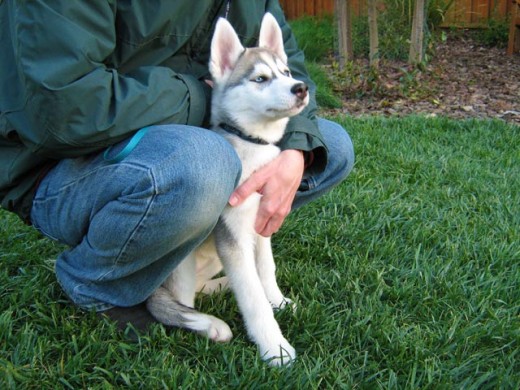
Dogs are 100% conditional. There’s nothing wrong with that unless you have unrealistic expectations. You’re fooling yourself to think otherwise.